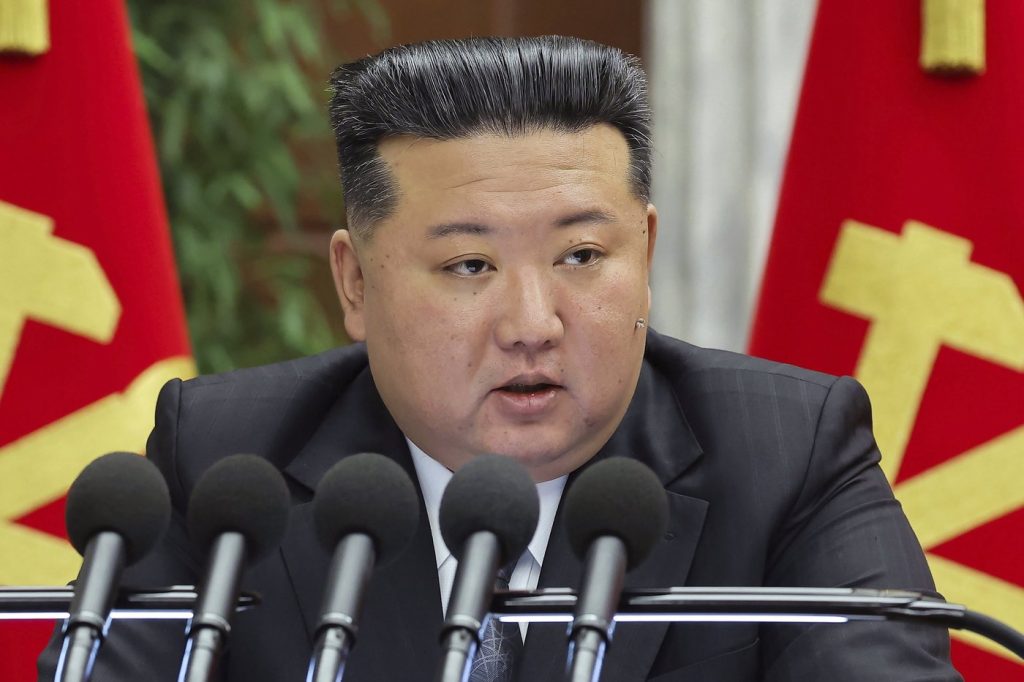SEOUL, South Korea (AP) - North Korea has issued its first direct criticism of the Trump administration, specifically targeting U.S. Secretary of State Marco Rubio, who labeled it a "rogue state." The North Korean regime cautioned that such "coarse and nonsensical remarks" are detrimental to U.S. interests. This statement reflects North Korea's ongoing reluctance to engage in diplomatic discussions with the United States, despite Trump expressing willingness to reconnect with Kim Jong Un.
Experts indicate that Kim Jong Un is currently occupied with the situation in Ukraine, as he has reportedly deployed between 10,000 to 12,000 North Korean troops to Russia to support its military efforts. Analysts believe that Kim's focus on Russia may delay any potential diplomatic overtures towards the U.S., but he might consider them in the future if he feels that his partnership with Russia is in jeopardy once the conflict concludes.
Moon Seong Mook, an analyst at the Korea Research Institute for National Strategy, noted that while Kim seeks to maintain a strong alliance with Russia, it remains uncertain whether such a relationship will sustain after the war. The implications of this relationship could impact North Korea's broader foreign policy, particularly regarding the United States.
During his presidency, Trump had met Kim three times between 2018 and 2019, marking historic moments as the first sitting U.S. president to engage in summits with a North Korean leader. Although dialogue regarding North Korea's nuclear ambitions ultimately faltered, Trump's potential return to negotiations sparked speculation about a new political dialogue. On his inauguration day, Trump acknowledged his personal ties with Kim, describing the North Korean leader as "a tough cookie" but someone with whom he has established a relationship.
Trump’s recent comments have continued to characterize Kim as "a smart guy," further emphasizing an intention to reconnect if given the chance. However, North Korea’s response to these overtures has been muted, as it maintains a stance of hostility towards the U.S. In December, Kim declared his intent to pursue the "toughest" anti-U.S. policy, suggesting skepticism regarding what he could gain from renewed negotiations, particularly after previous talks collapsed in Vietnam.
Kwak Gil Sup, head of the One Korea Centre, commented that the failed summit in Hanoi likely was a humbling experience for Kim, potentially making him hesitant to entertain Trump's advances too quickly. Kim's rhetoric has increasingly framed the U.S. as having an "unchangeable" hostility toward North Korea, reinforcing his belief that the nation’s nuclear program is essential for countering external threats.
Furthermore, North Korea's Foreign Ministry reiterated its antagonistic view of the U.S. by condemning Rubio's remarks, which were made during a January 30 appearance on "The Megyn Kelly Show," where he cited both North Korea and Iran as "rogue states." This suggests a precarious diplomatic landscape, where North Korea perceives continued U.S. hostility.
The ongoing collaboration between North Korea and Russia adds another dimension, as North Korea has supplied a significant volume of conventional weaponry to Russia amid its ongoing war efforts in Ukraine. In turn, North Korea has reportedly received military and economic support from Moscow, reinforcing their alliance through mutual assistance agreements. This relationship has not only helped Kim withstand U.S.-led pressures but has also facilitated a channel for potential military upgrades from Russia.
As the international focus remains on the developments in Ukraine, analysts warn that if the relationship between North Korea and Russia diminishes post-war, Kim may find himself needing to re-engage with the U.S. to seek new avenues for support. Moon posited that after the conflict, Kim’s strategic position may change, and he could refocus his diplomatic efforts toward the United States if his expectations from Russia are unmet.










